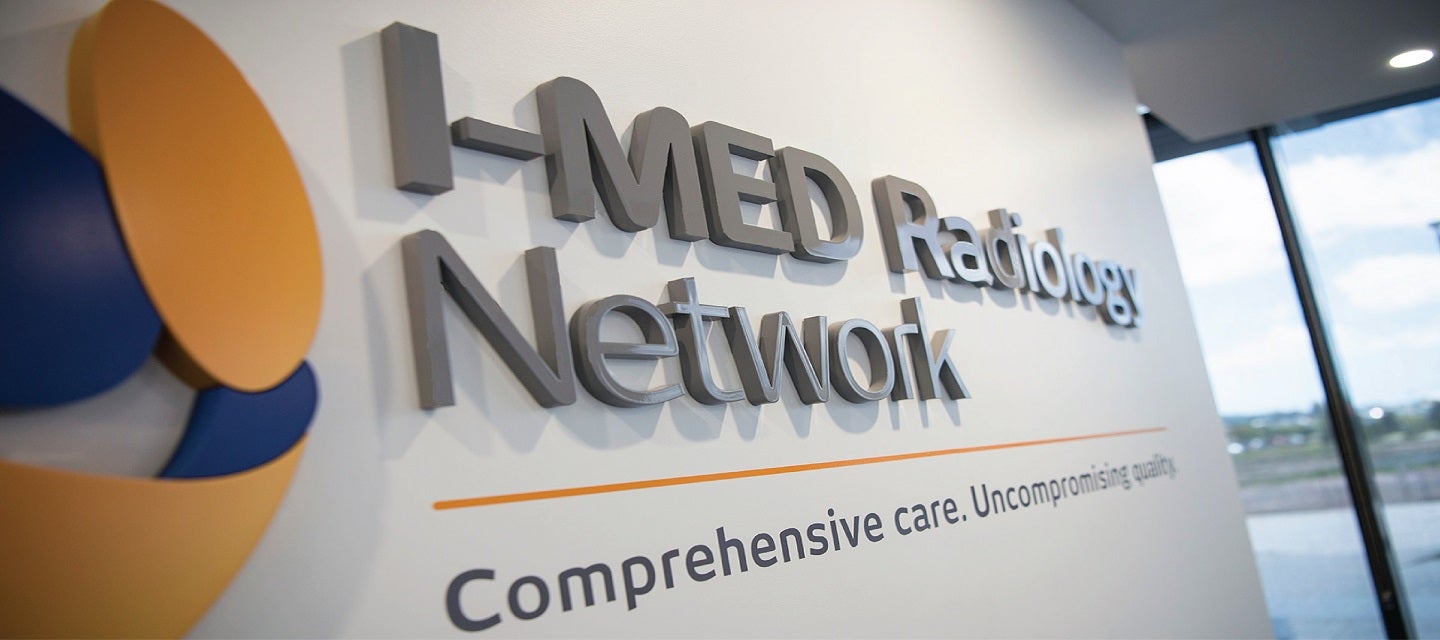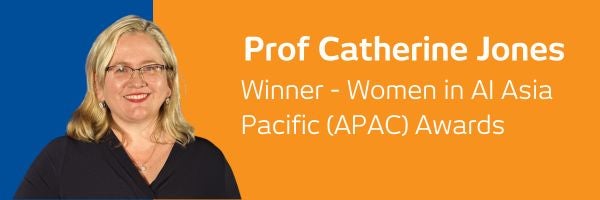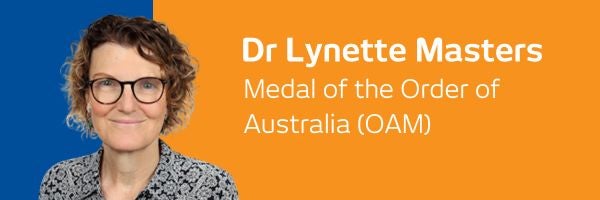
Celebrating the exceptional achievements of our radiologists
Celebrating the exceptional achievements of our radiologists

Within I-MED Radiology’s diverse and highly skilled network of radiologists, we are proud to recognise three extraordinary radiologists who are making significant contributions to their respective fields, but also enhancing the quality of care we provide to patients.
We are delighted to shine a spotlight on:
- Dr. Lynette Masters awarded the Medal of the Order of Australia (OAM) for her contributions to medicine as a neuroradiologist.
- A/Prof Nick Stephenson appointed a Member of the Order of Australia (AM) for his significant service to medicine and medical imaging training.
- Professor Catherine Jones winner in the Women in AI Asia Pacific (APAC) Awards for 2024 in the AI for Health category.
Discover more about the incredible work these radiologists have been doing below, including reflections and insights into their contributions to medical imaging and patient care.
Dr Lynette Masters, a neuroradiologist with I-MED Radiology in Sydney, was recognised in The King's Birthday 2024 Honours List and awarded the Medal of the Order of Australia (OAM) for her contributions to medicine as a neuroradiologist.
Dr Masters shares her reflection on the award and her career as a neurologist below.
What does this award mean to you both personally and professionally?
I feel very humbled, surprised, and proud to receive the Medal of the Order of Australia (OAM). It's a recognition of neuroradiology as a subspecialty, which is significant because radiology in Australia is generally broader compared to the US (where I trained and worked for some years). This award is also a recognition of the incredible team I work with, including radiographers and secretaries. You're only ever as good as the staff you work with, and it's truly a whole team effort.
Could you describe some of the advancements or projects you've been involved in?
My role is predominantly clinical, but I also work closely with researchers at the Brain & Mind Centre. I am involved in designing some of the research protocols and report on their scans, operating at the intersection of research and clinical applications. One of our significant projects has been with the Sydney Neurology Analysis Centre, with the development of AI algorithms for monitoring multiple sclerosis (MS) patients. We then assessed them in clinical settings to ensure their practical application and effectiveness.
Read more about this research in the study titled, A real-world clinical validation for AI-based MRI monitoring in multiple sclerosis, here.
What inspired you to specialise in neuroradiology, and what do you find most rewarding about working in this field?
I first trained as a neurologist and found the field endlessly fascinating, but I was often frustrated by the limited treatment options available at the time. This was on the cusp of the MRI revolution, with many advancements in neurosciences being largely driven by imaging, particularly the advent of MRI. This led me to train as a radiologist and then subspecialty training as a neuroradiologist. As a neuroradiologist I remain deeply connected with neurology, but in a diagnostic role. MRI has become the backbone of neurology and neurosurgery practice, and delivering high-quality scans and reports is crucial.
Dr. Nick Stephenson, based in Wagga Wagga NSW, was appointed a Member of the Order of Australia (AM) in this year's Australia Day Honours List.
Dr. Stephenson has been an integral member of I-MED Radiology’s clinical team since 2001, dedicated to serving the Riverina community in regional New South Wales. His radiologist journey, marked by a passion for rural and regional medicine, has spanned decades and has significantly contributed to the medical community both in Wagga Wagga and further afield.
Beyond his clinical contributions, Dr. Stephenson is actively involved in doctor recruitment, medical education and addressing medical workforce challenges in rural and regional Australia. His Order of Australia recognition is for his significant service to medicine and medical imaging training and highlights his dedication to helping make rural Australia's medical workforce more resilient and self-sustaining.
Dr. Stephenson realised very early in his career that the rural medical workforce shortage is a major contributor to poorer health outcomes that remote, rural and regional Australians experience. He has spent the past 28 years encouraging and supporting the ruralisation of all elements of the medical workforce pathway from high school aspirants, through to medical school students, junior residency, and Fellowship subspecialty training programs.
In addition to his role in fostering the education, training, and mentoring of future generations of rural doctors, Dr. Stephenson has significantly impacted their integration into regional communities. His efforts extend beyond traditional teaching, and he has played a crucial role in helping guide these professionals as they establish their professional practices outside of Australia's major metropolitan centers.
Dr. Stephenson believes that, “to be self-sustaining, rural Australia needs enough locally resident doctors of varying age, experience and skill set, who have the time, energy, ability and support to train the continuing generations of rural doctors.”

Professor Catherine Jones has been recognised for her work in artificial intelligence across radiology and the wider healthcare environment, being announced last week as the winner in the Women in AI Asia Pacific (APAC) Awards for 2024 in the AI for Health category.
The Women in AI (WAI) Awards celebrate women from diverse backgrounds who are making significant advances in the field of Artificial Intelligence. This nomination highlights Professor Jones' outstanding achievements and dedication to advancing AI in healthcare. Catherine was also recognised for her work in the wider AI community as 2nd runner up in the overall AI awards, covering all facets of industry outside healthcare.
“Being recognised for my work in AI across Asia Pacific is humbling. There are so many inspirational people working together to bring to fruition the potential benefits AI can offer us, not just in radiology but in wider society. I am passionate about embracing technology and delighted to bring my experience in diagnostics, medical technology and academia to deliver strong AI validation and implementation frameworks across healthcare. I-MED has a well-developed AI strategy and is a world leader in AI innovation in radiology. I have been fortunate to have the opportunity to contribute as the AI committee chair at I-MED and look forward to continuing our work to improve patient care and provide high quality radiological services to our patients and referrers.”
Professor Jones is the Chair of the AI committee at I-MED and works with medical AI companies to develop clinically useful AI tools for medical imaging interpretation, workflow, and education of doctors and other healthcare professionals. She has a long career in medical research and has an academic appointment as adjunct professor at the University of Sydney. She has published over 40 research articles, mainly in thoracic imaging, statistical methodology in diagnostic testing and validation of medical AI algorithms.


